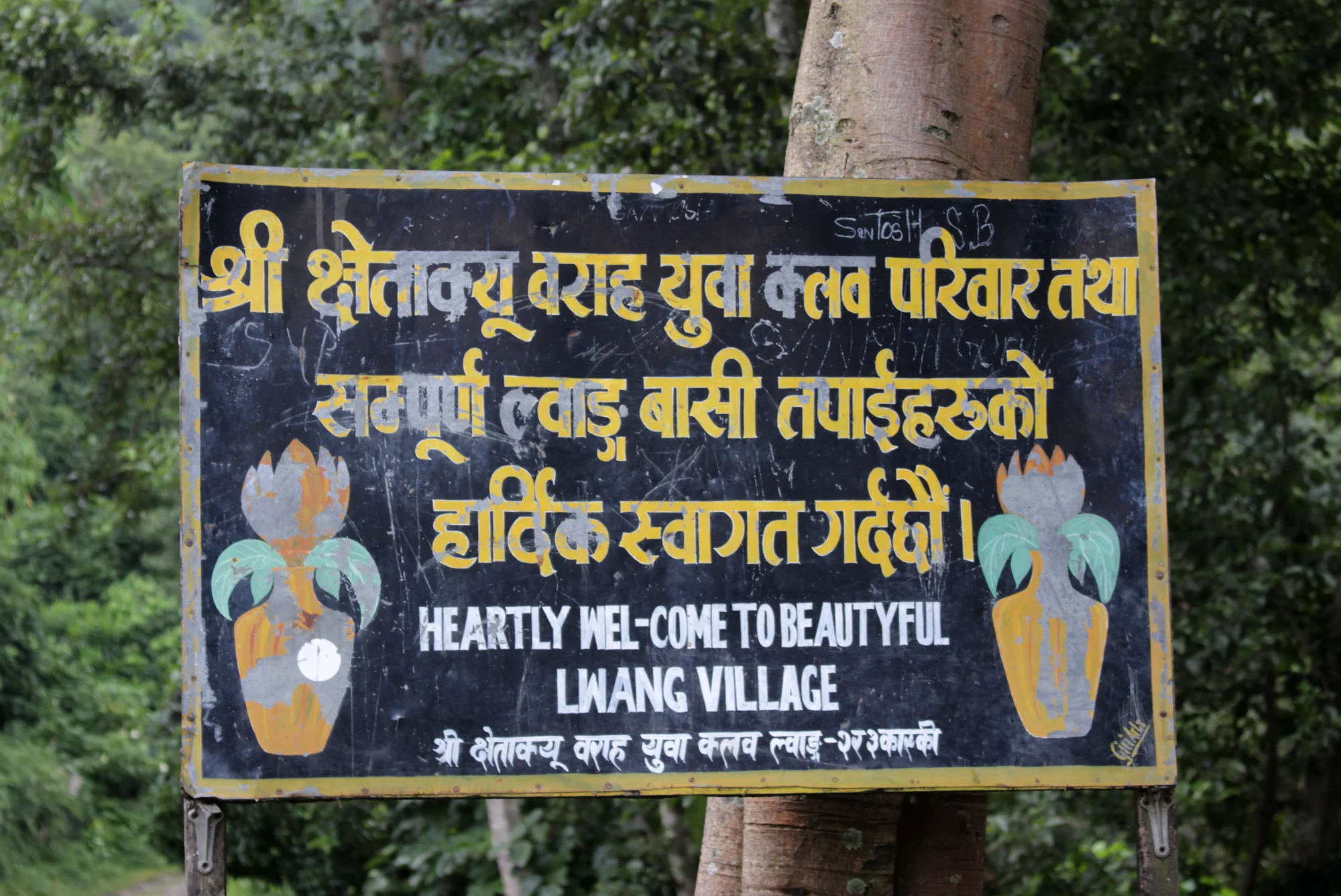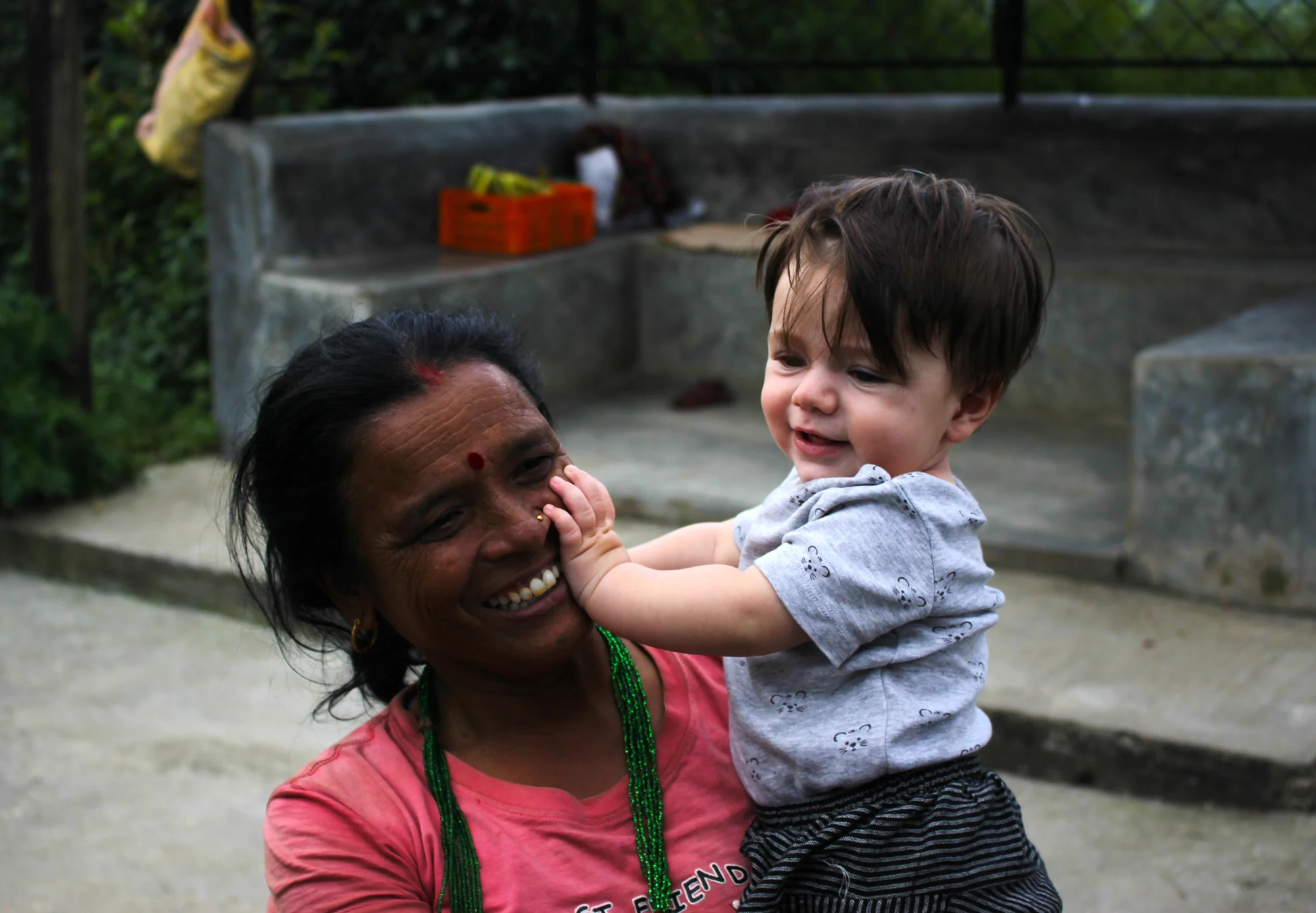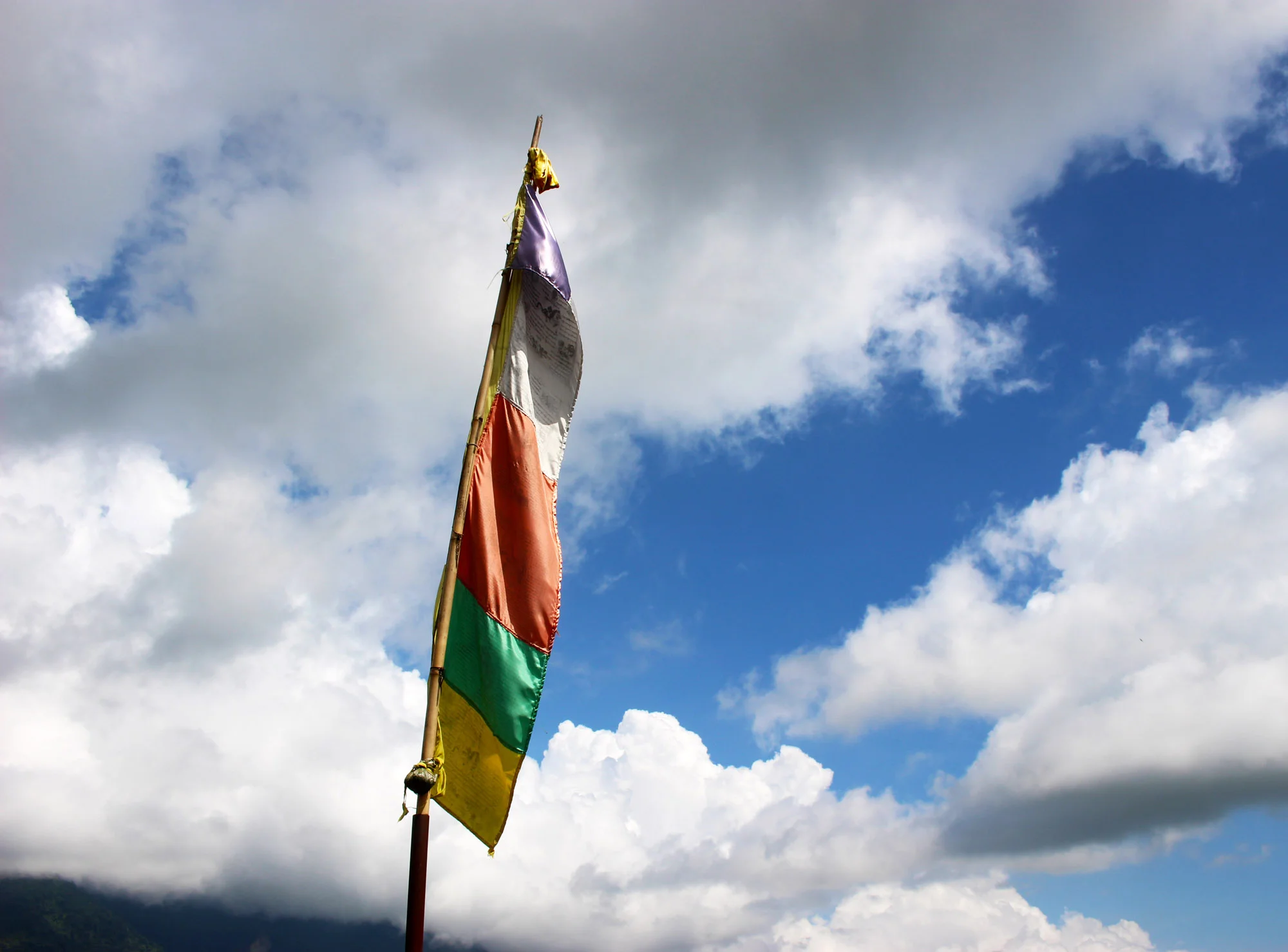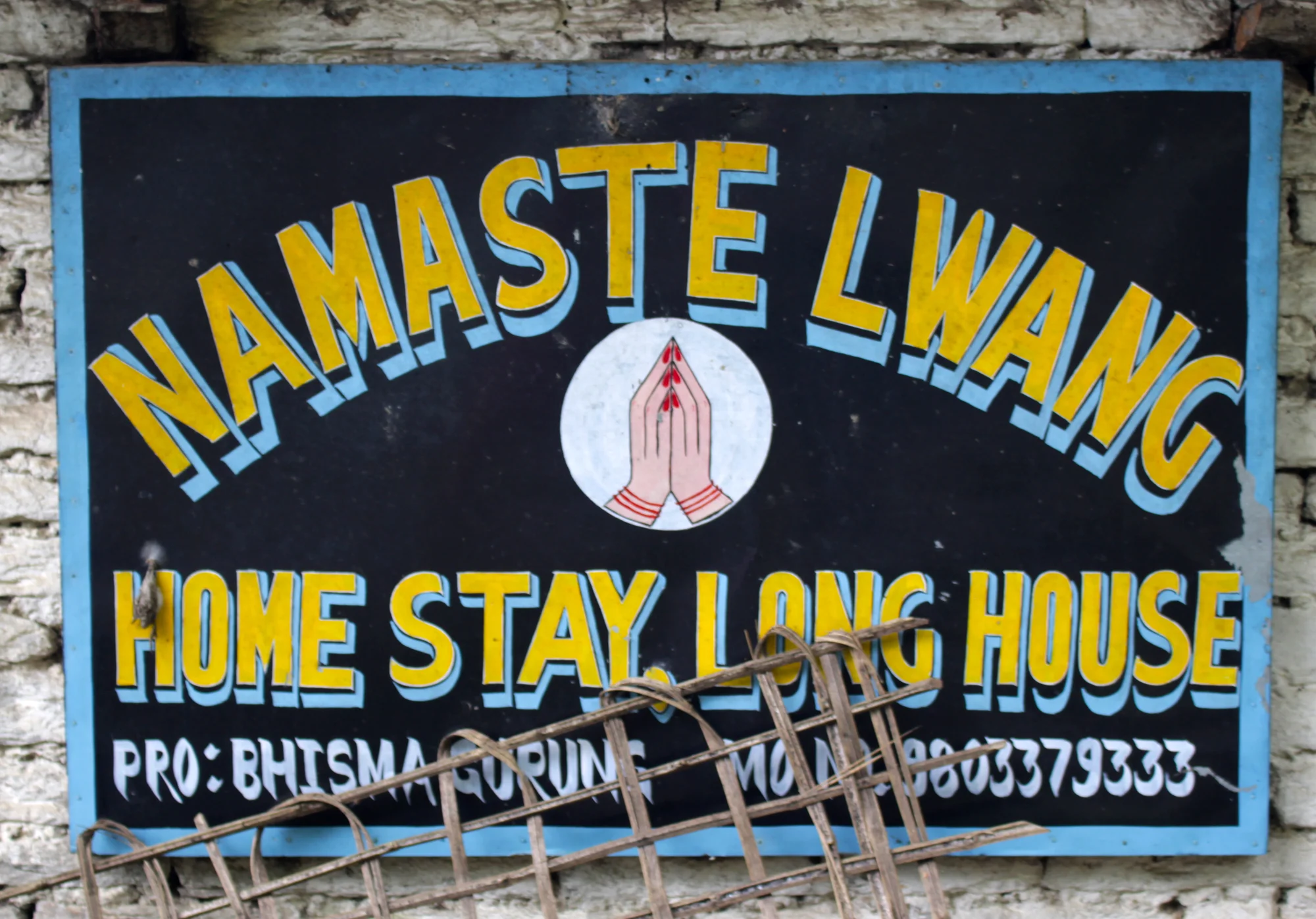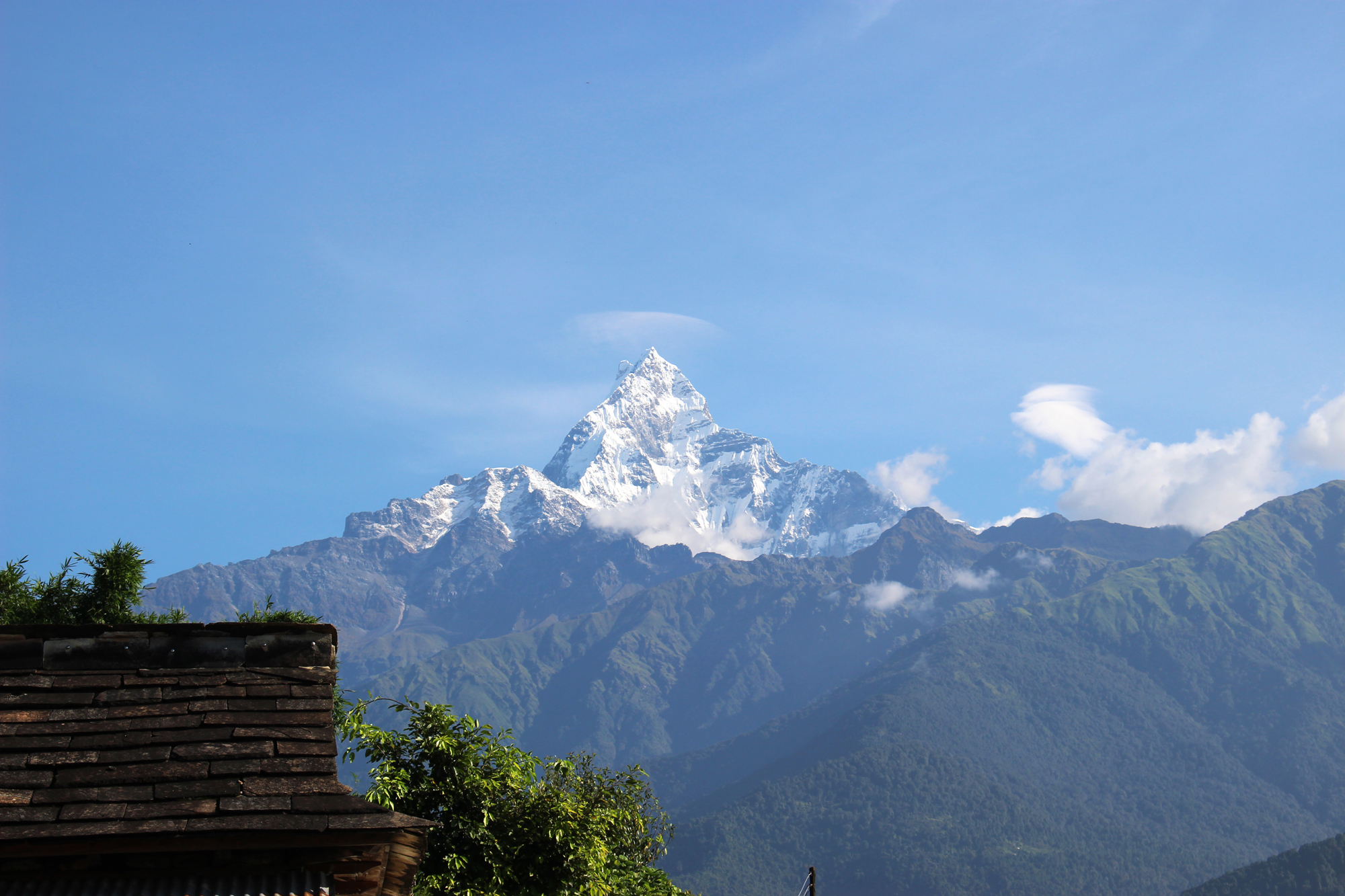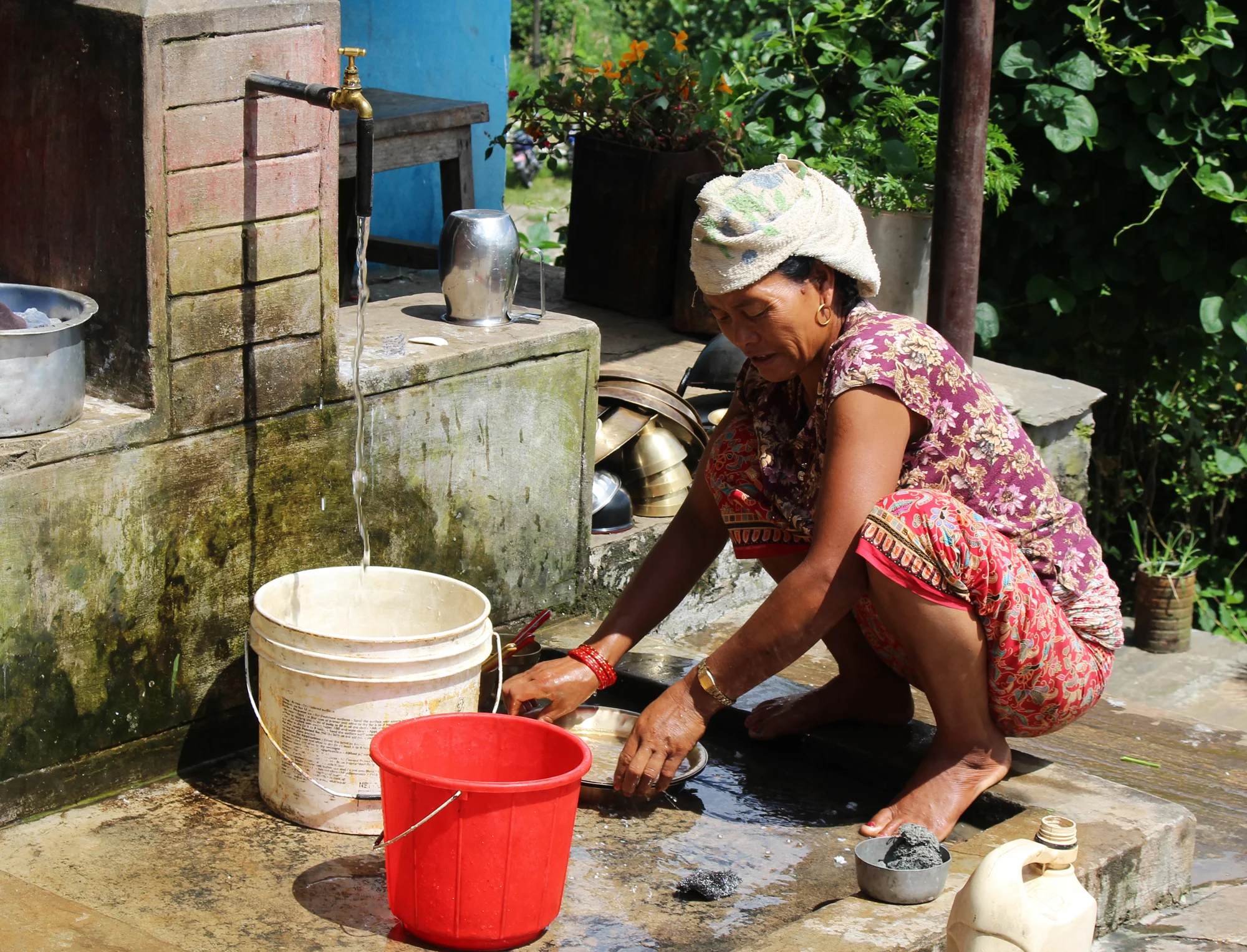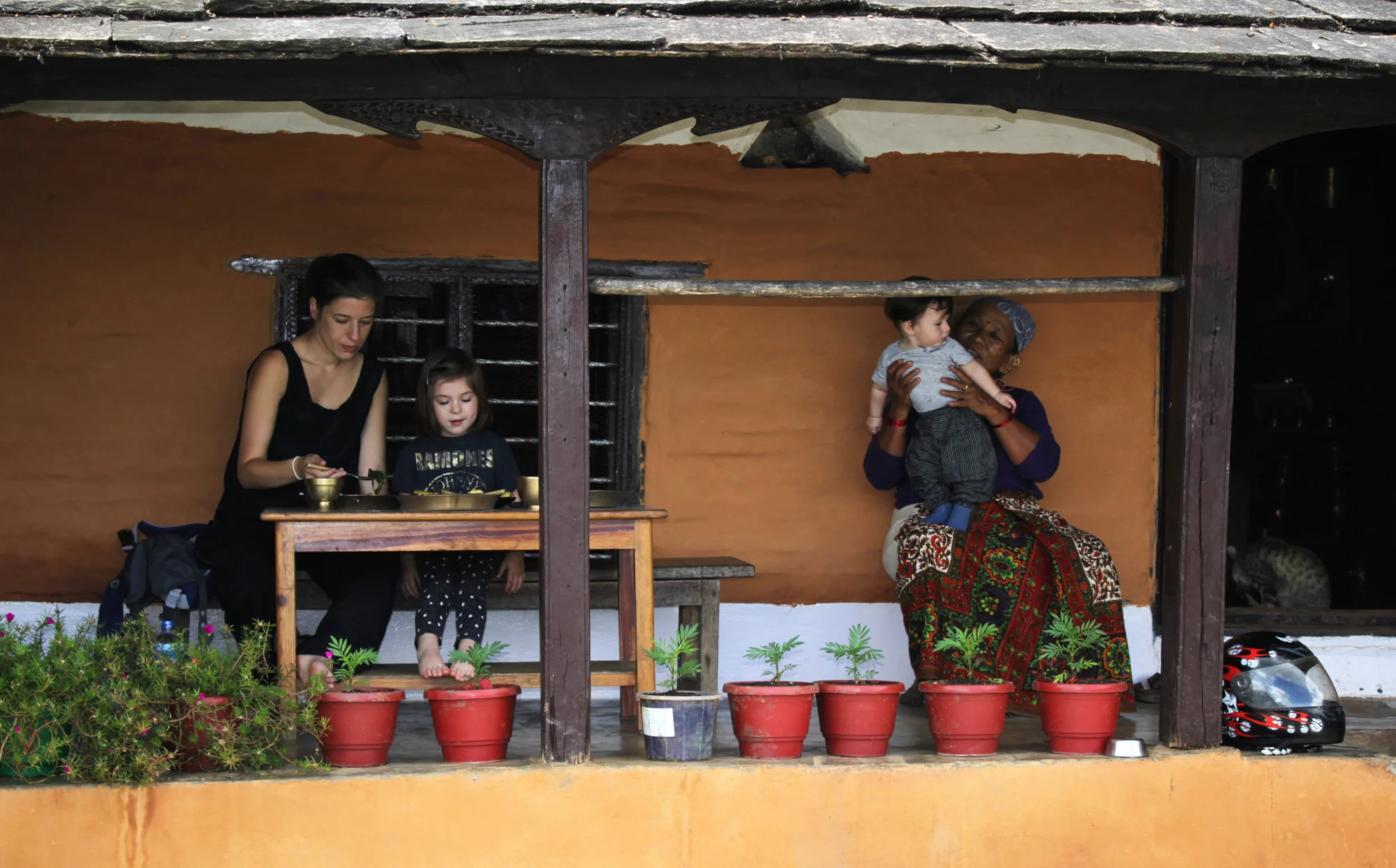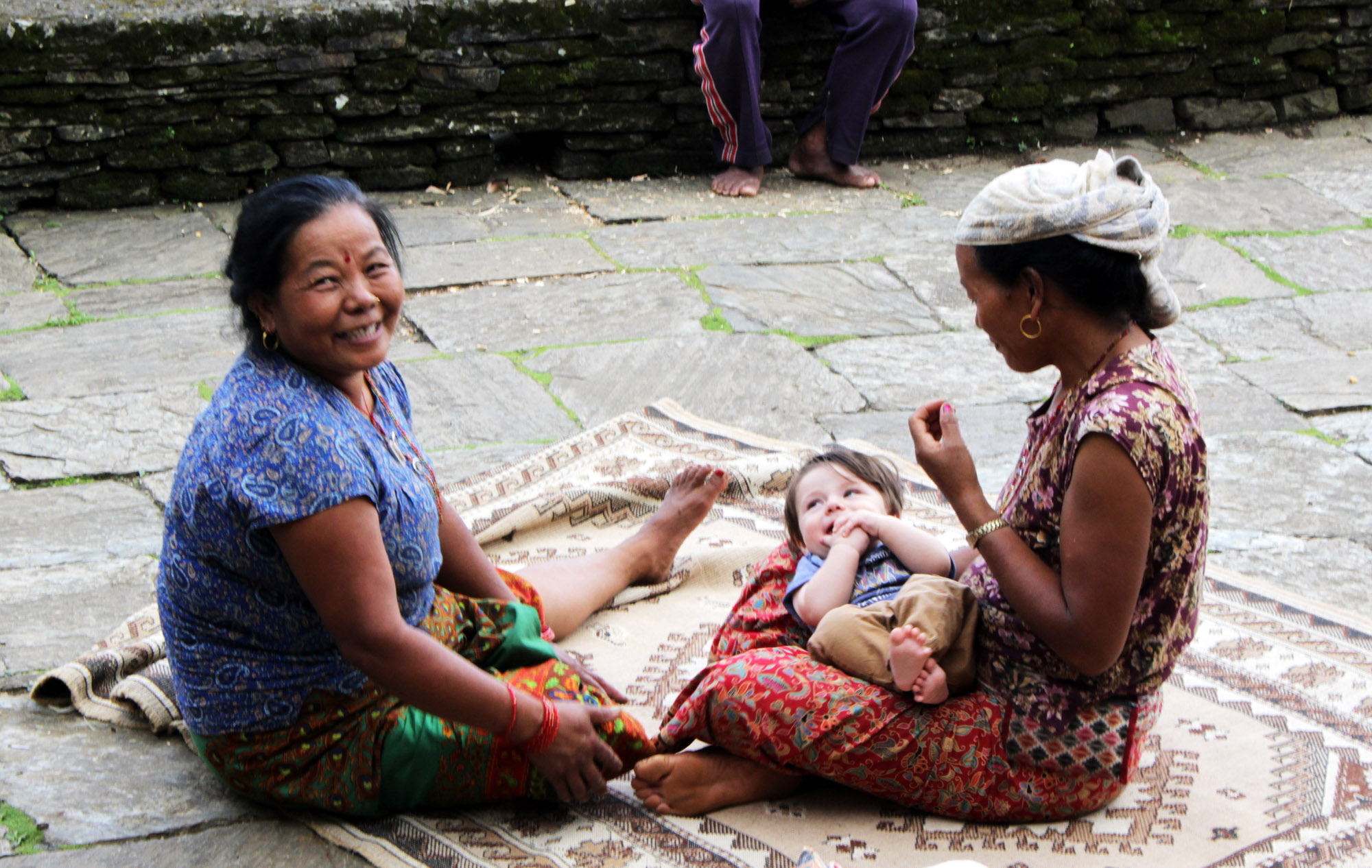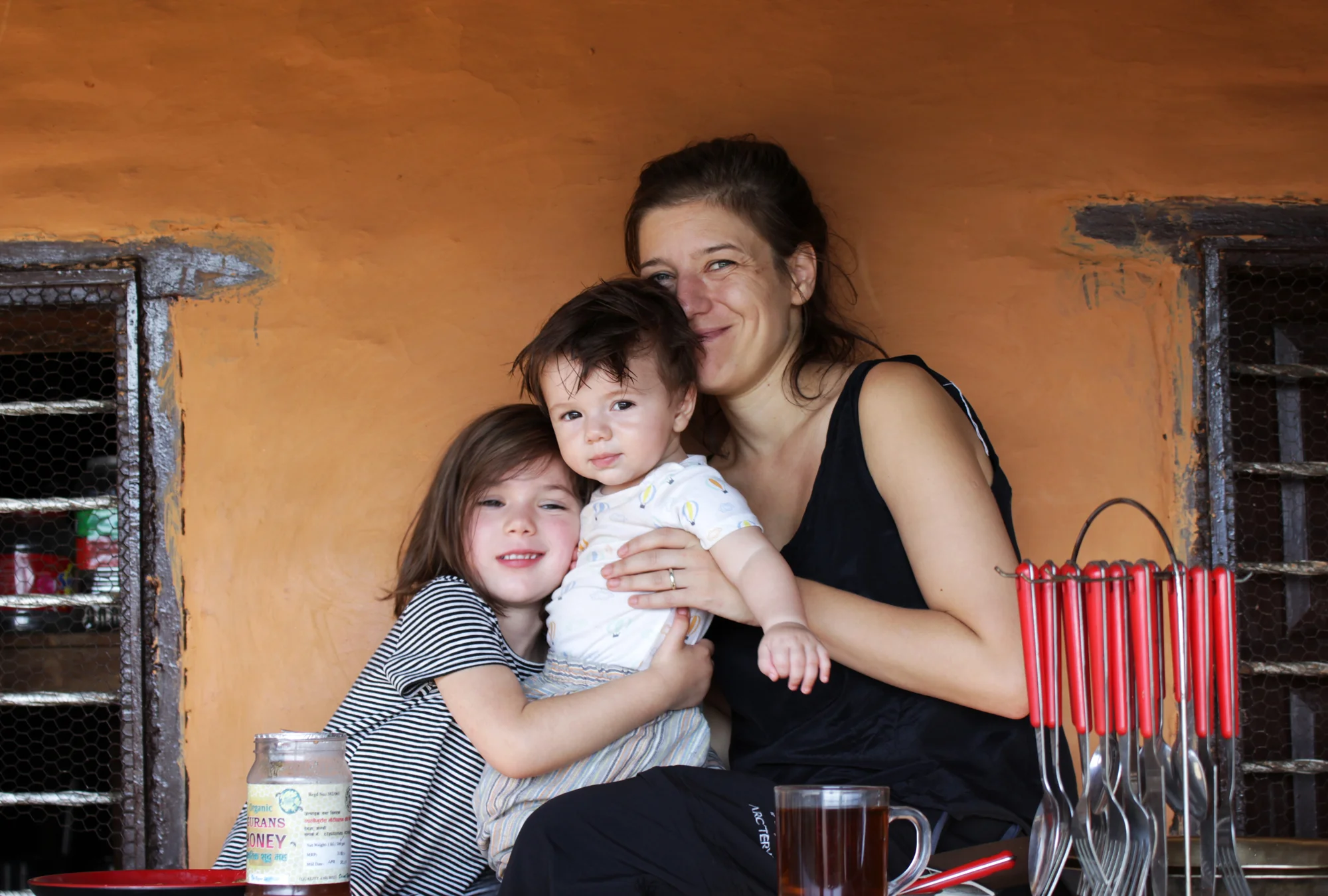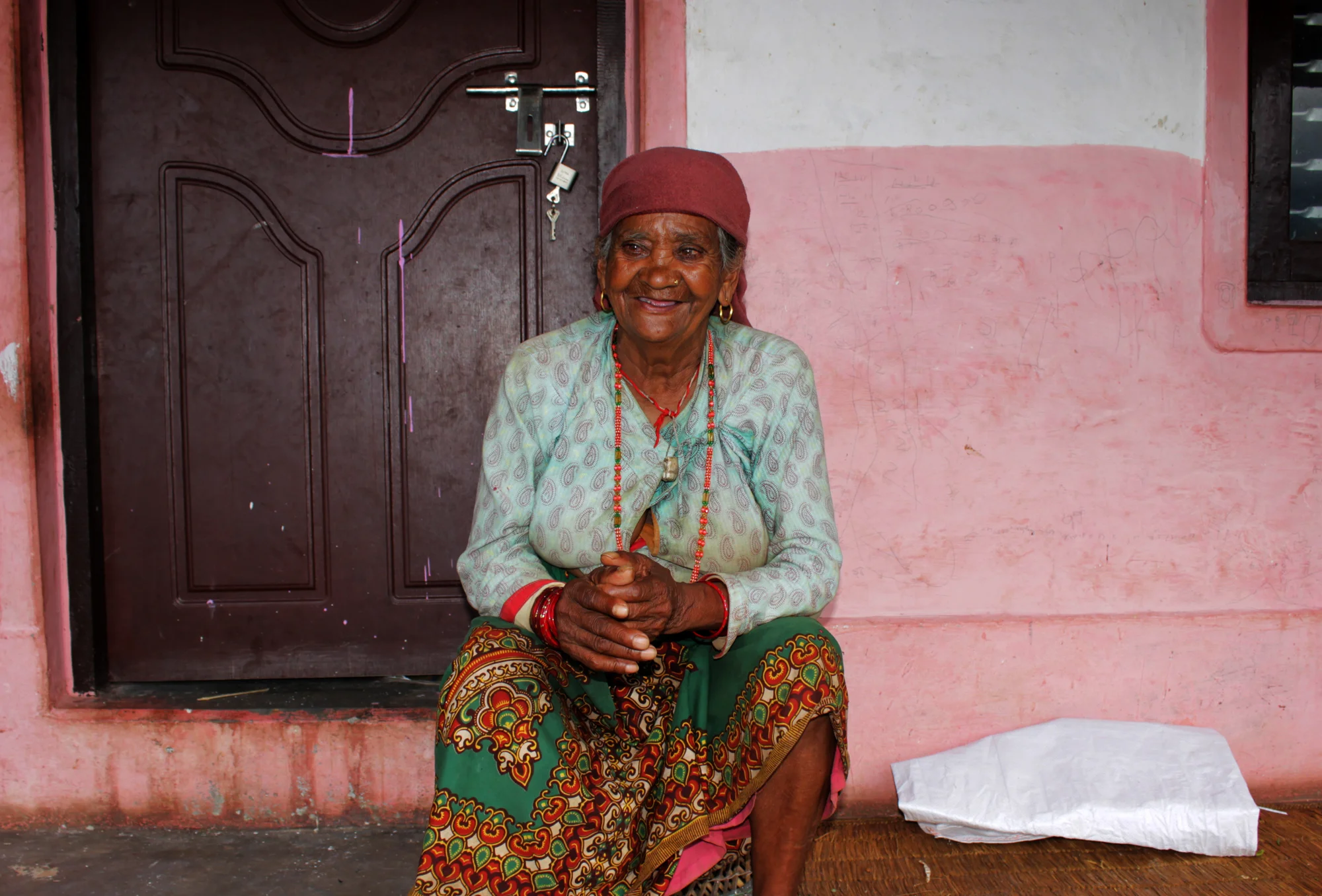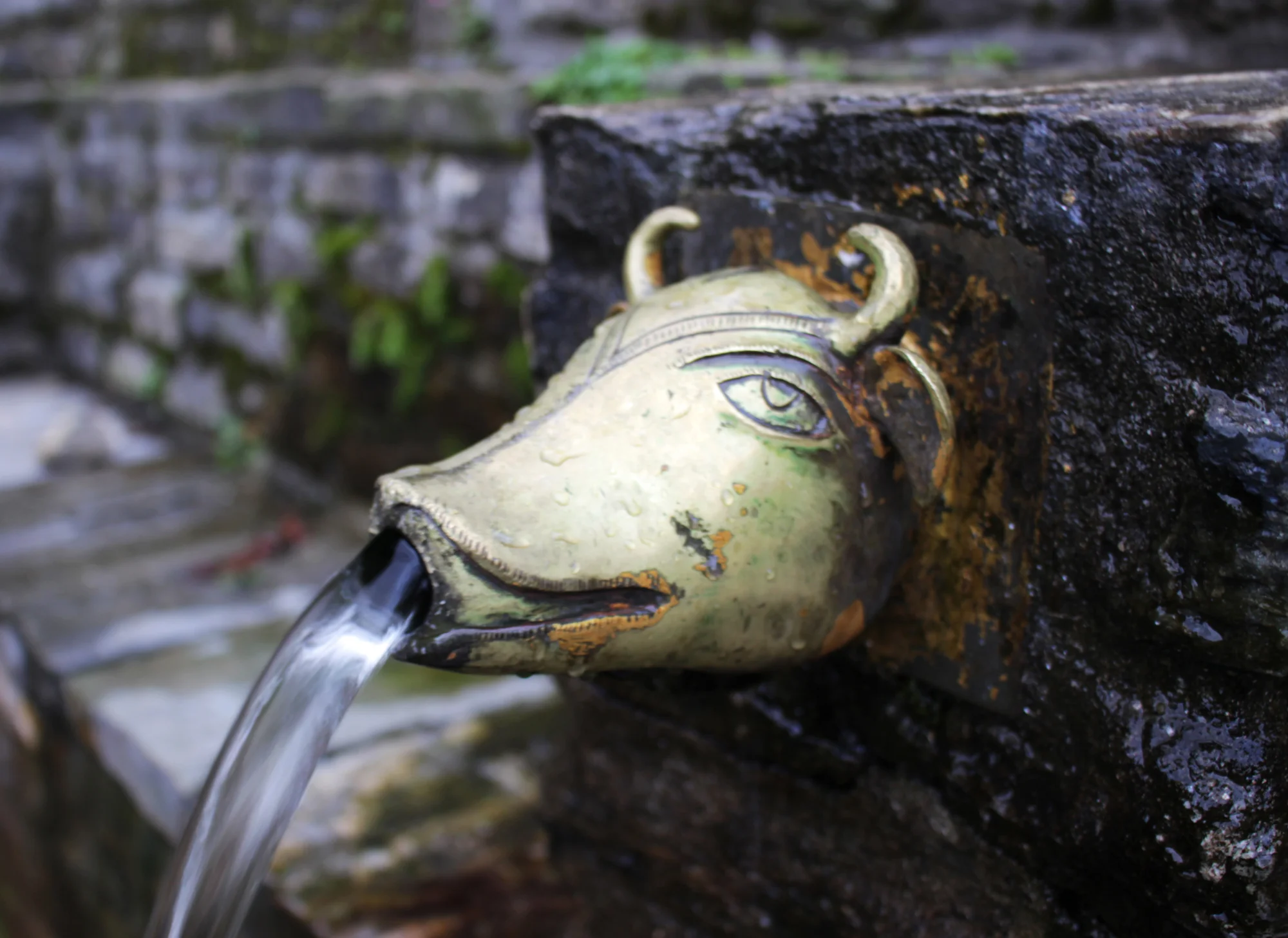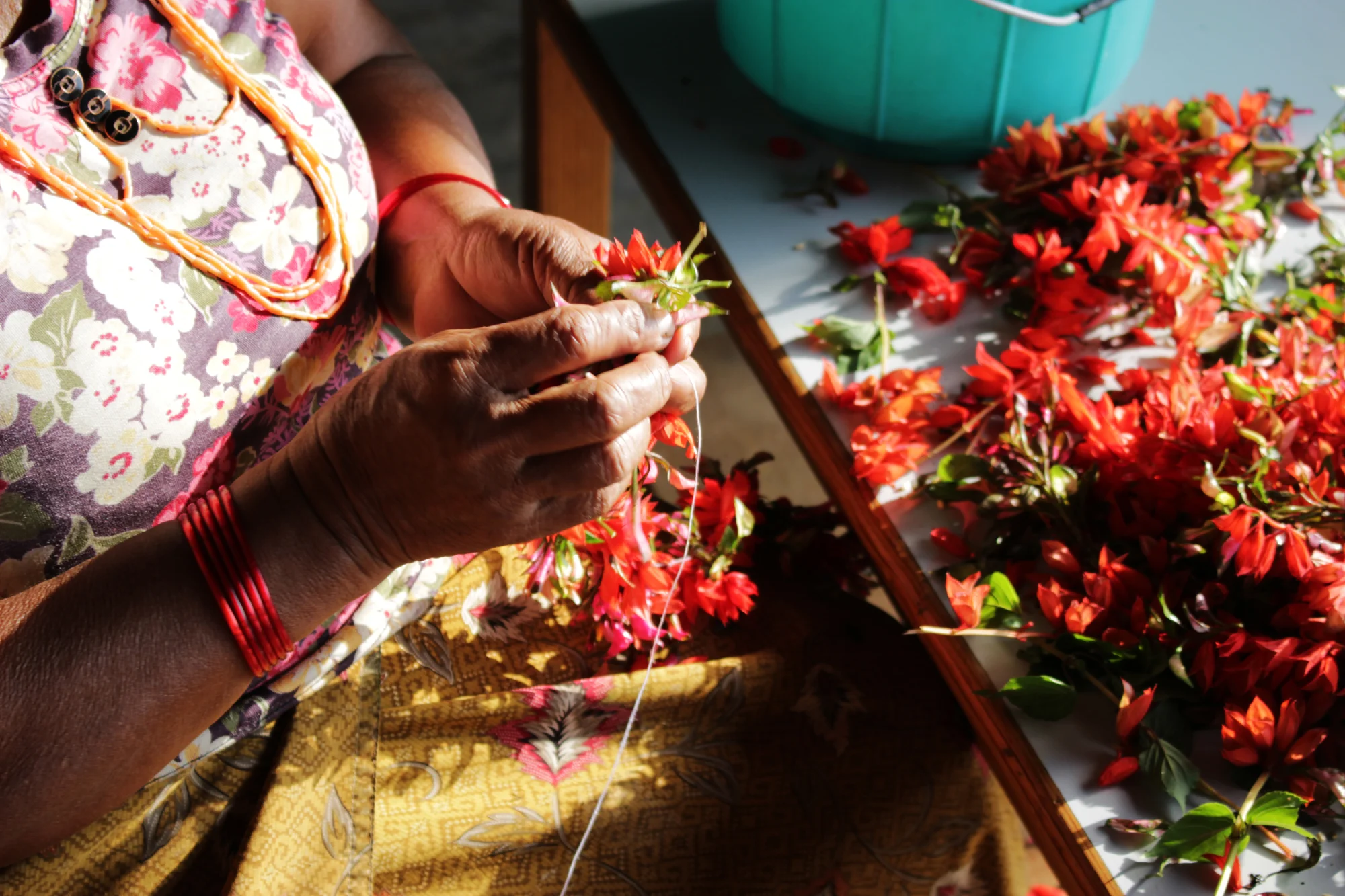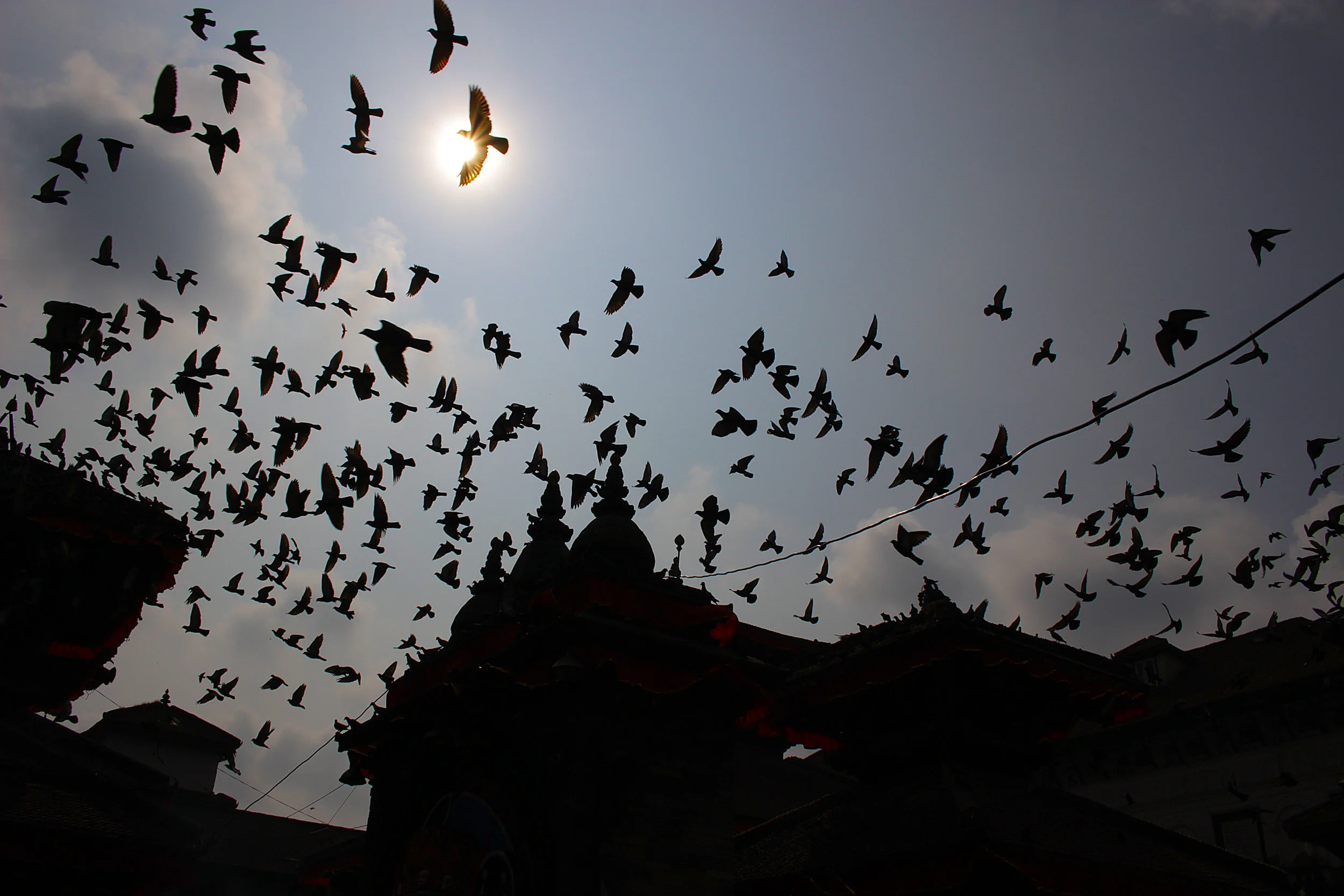It takes a village
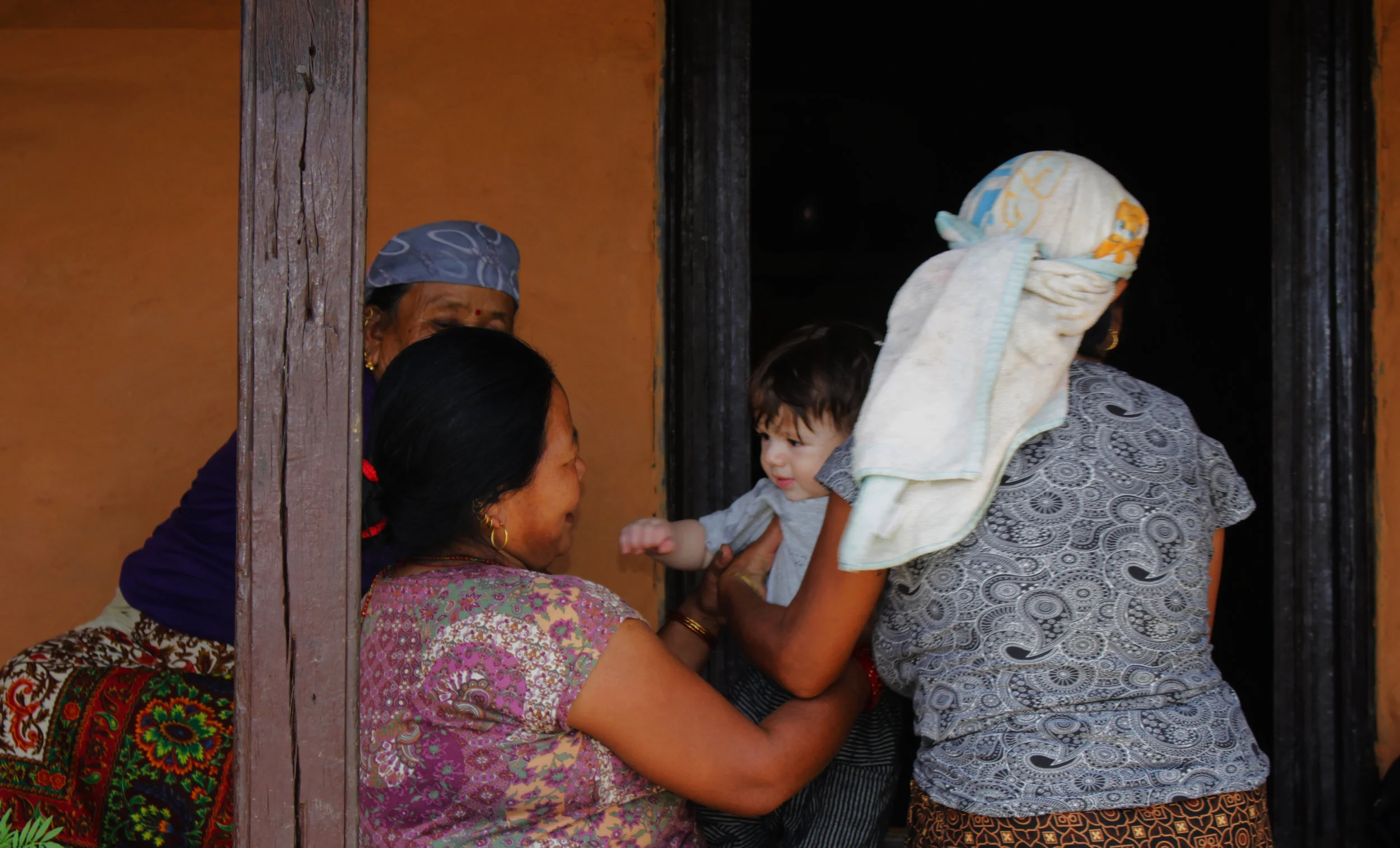
“Ah Brockley, I know. I lived in Orpington. Very nice England. Very good place.”
And there it was. The random connection that is always there, wherever you are, waiting to be unearthed and make the stranger a friend.
The four of us were piled into the backseat of the Jeep, River napping in his sling and Olivia hanging on for dear life as we left the city of Pokhara behind. We hurtled off-road for a juddering journey through tiny villages and sweeping landscapes. And in front of us was Tirtha Gurung, who used to live in Orpington, of all places. A neighbour in another life.
The great thing about being in a Jeep (as opposed to the tortuous nine hour coach trip from Kathmandu to Pokhara) is that you regain some control. You can decide when to stop for a photo, a pee or in our case, a run through a rice paddy. A dream of Olivia’s since seeing it on her beloved ‘Go Jetters' cartoon, she was beyond excited to experience it for herself. So up we pulled and off she went, on her dad’s shoulders, returning twenty minutes later with a huge grin and a stalk of rice in her hand. It turns out she knows a lot more about rice than us.
An hour and a rollercoaster of a drive later, we were at Lwang Village Homestay, one of the most successful models of village tourism in Nepal. A sleepy community tucked into the Himalayan hills at 1550 metres, it is part of the Annapurna Conservation Area and home to the Gurung family, our hosts for two days of learning, living, walking, and breathing.
The Gurungs have been welcoming guests since 2011, and whilst the village has taken great care to preserve its cultural heritage and day-to-day routine, the Homestay Management Committee have taken care of basic hygiene to make it suitable for tourists. Luxury mountain lodge it ain’t. This is far better.
Pokhara, to most people, means trekking. It’s the gateway town to the most famous Himalayan trails. We, on the other hand, have a baby who can’t go above 2000 meters and a four year old who isn’t the biggest fan of walking. So we were looking for an alternative way to experience the Himalayas, and Lwang seemed to be the perfect answer. And, apologies to the heroic trekkers who endure altitude sickness and blisters, but Lori spent four months in Nepal twenty years ago and trekked the Annapurna trail. He preferred this.
Lwang itself is a maze of stone steps and hidden corners. The smell of fire starts early in the morning and burns till late. The breathtaking Mount Fishtail looms over the village with total clarity, a view that people would pay thousands for, free to this community with so little. By day, the soundtrack is the clatter of dishes and chatter of local women, punctuated with tinny Nepali music from the radio. By night, it’s an orchestra of buzzing crickets and barking dogs and buffalos making whatever noise buffalos make. Unidentifiable creatures tap-dance on the roof, but we try not to think about that.
The Gurung family are wonderful. Tirtha, our guide and the only English-speaker present, is the son of the family. Super laid-back, he is happy to show us the water mill, the tea factory and get up at stupidoclock to march us up a very steep hill for the perfect mountain view.
Tirtha’s mother, Sita, lives next door to our room, occasionally bringing us a plate of boiled potatoes or a tray of tea fresh from the plantations above, which beats any hotel room service hands down. His brother Jagannath, who we nickname ‘smiley man’ seems to be the happiest man in the world, spending his days watching the mountains, dealing with the washing and beaming at our son. His wife Him Kumari is a true life-force, whisking River (now known as Babu) away at the first opportunity while chattering away to Laxmi, the curiously modern chef and Dammar, the aunt with an earful of gold rings. Nobody gives a damn whether we speak Nepali or not. That’s all we’re getting, and somehow we communicate.
Lwang Village is the kind of experience that most parents wouldn’t consider, but it’s actually perfectly geared up for kids. Just not in the way you might be accustomed to. Here, it’s not about providing a designer highchair, bouncer or bottle warmer. It’s not about stuff.
Firstly, every inhabitant absolutely adores children, so a stay at Lwang provides you with the best kind of free childcare, a literal version of the village it takes to raise a child. The shared shower is cold water only, but when it was River’s turn, Sita rushed to boil some water, and our baby was duly plonked into a huge bucket for a nice warm bath. When it comes to feeding a four year old, Laxmi tones down the chilli heat on request. And as mothers themselves, they know you need your hands to eat, so whisk the baby away as soon as your dinner makes an appearance.
During the day, it’s up to you. If you just want to sit on your porch and play Snakes and Ladders with a local child, that’s fine. But if you wander a little further afield, there are endless activities for kids to take part in. Some take half an hour, some a little more. But they’re all within walking distance and they’re all actually educational without seeming it. Olivia and Lori counted the things she’d learned in one day, and from making butter and yogurt from buffalo milk to seeing a rice mill in action and eating jungle berries in front of the world’s highest mountains range, there were sixteen of them. Sixteen.
We’ll be honest. A homestay like this isn’t an easy experience with kids. You have to be careful, you have to bring a lot of insect repellent, you have to be prepared to go back to basics and take your pampered children back with you. Olivia was shy too, of course. Village life can be overwhelming. It’s a very different world and pace and it’s way out of our comfort zone as adults, so for a four year old it’s an awful lot to deal with. She still doesn’t like being her face being grabbed at random by strangers. She still doesn’t like spicy food. Having said that, there were more than enough of the beautiful moments to make it worthwhile. The pride she took in preparing the vegetables with Sita. The surprise when she found that tea flowers really do smell of tea. The stories she’ll be taking home to tell her friends in London. Those flashes of joy or interest or excitement at learning something new which make us know in our bones that we did the right thing taking her travelling in the first place.
There’s one last thing. There’s no internet, and it’s wonderful. Because the total lack of technical connections meant that we could concentrate on the real-life ones. Our kids got their parents back, phones abandoned and minds back in the room. And that, right there, is surely the whole point.
If you want to stay at Lwang Village Homestay, contact:
Tirtha Gurung
+977 9823616547



